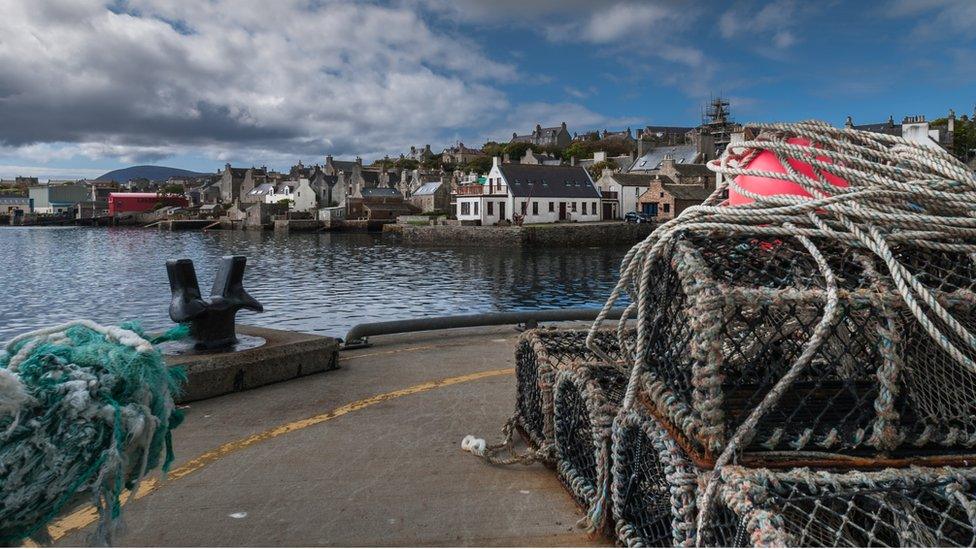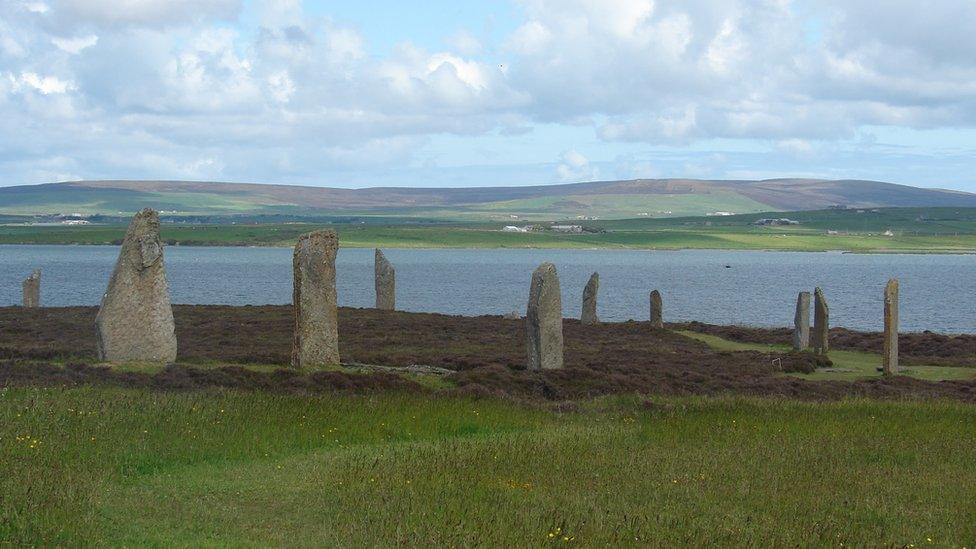Orkney steps up calls for more autonomy
- Published

Orkney voted strongly in favour of the status quo in both the EU and independence referendums
Orkney councillors have backed calls for the islands to be given greater control over their own affairs.
But while they want Orcadians to be given a "stronger voice", they do not back full independence for Orkney.
Orkney voted decisively in favour of the UK remaining in the EU in last year's referendum.
It also returned the highest No vote of any council area in the 2014 independence referendum, with 67% voting for Scotland to stay in the UK.
But the reality of being taken out of the EU and the possibility of another independence referendum has rung alarm bells with some members of Orkney Islands Council, who feel that the views of Orcadians are in danger of being ignored.
Council officials prepared a 19-page report, external considering "whether the people of Orkney could exercise self-determination if faced with further national or international constitutional changes" and whether "more autonomy might be beneficial for the wellbeing of Orkney".
'Long-held belief'
It had been requested by Councillor Graham Sinclair, who clarified during a council meeting on Tuesday that he was "not in favour at all of separatist independence" but instead wanted to explore "greater autonomy and self-determination for Orkney".
And he stressed that calls for more autonomy should not be taken as a sign of support or criticism for any party political stance or constitutional arrangement.
Mr Sinclair added: "The report reinforces what has been a very long-held belief for me - Orkney is so distinctively different, both historically and culturally, that Orcadians deserve and are entitled to have a strong and clear voice of their own.
"They should at least be heard, and that is all Orcadians from those who have recently chosen to make Orkney their home to those that can trace their family roots back for a millennium."

Orcadians are proud of their distinctive culture and history
Mr Sinclair's views were echoed by the vast majority of councillors, who said there was "general agreement" that the islands should have greater autonomy - with the only question being what form it should take.
And they said it was important that Orkney was in a position to respond quickly to any further constitutional change.
Councillor Bill Stout argued that Orkney needed greater control over its own affairs "for the very pragmatic reason that we so often get one-size fits all instructions coming from Edinburgh when really we want to have the ability to tailor those instructions to the environment in Orkney".
But he said no decisions could be taken until the question of Brexit became clearer, and that the process of securing greater autonomy would be complex and require the cooperation of both the UK and Scottish governments.
'Unique contribution'
In the report, council officials explore the different methods that could be used to win greater powers.
And it sets out the constitutional arrangements of similar islands groups, external, including Jersey and Guernsey - which are both British Crown Dependencies but have never legally been part of the UK - and the Faroe Islands, which are a self-governing territory of Denmark.
Members voted for the council's chief executive to prepare a further report identifying what action could be taken in the event of "further national or international constitutional changes" that would allow the people of Orkney to exercise self-determination.
Orkney is already involved in the Our Islands, Our Future campaign, which is seeking additional powers and resources alongside the local authorities in Shetland and the Western Isles.
The Scottish government made the Lerwick Declaration in July 2013, which indicated its intention to decentralise power to the three island council areas of Orkney, Shetland and the Western Isles.
And the UK government has insisted that it "recognises the unique contribution that the Scottish islands make to the United Kingdom and is firmly of the belief that their potential can be fully realised as part of a prosperous, thriving UK economy and society".
There is currently no organisation in Orkney calling for independence for the islands - unlike in Shetland, where the Wir Shetland group is dedicated to winning self-governing powers for the islands.